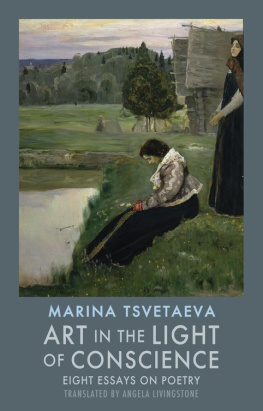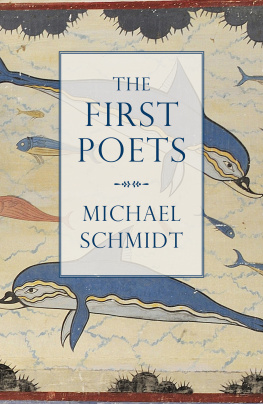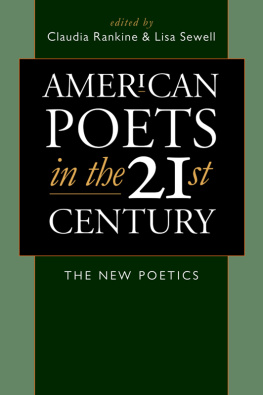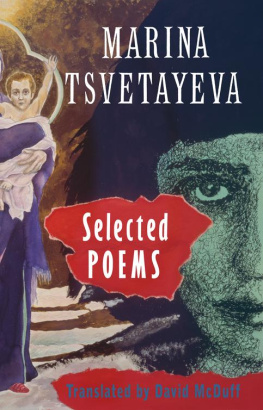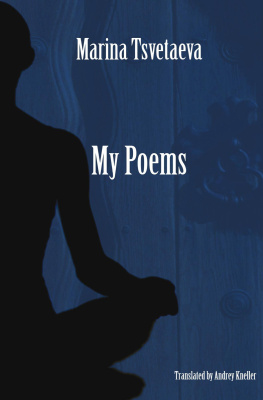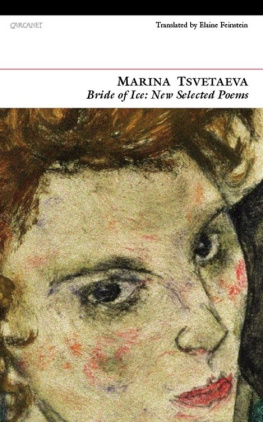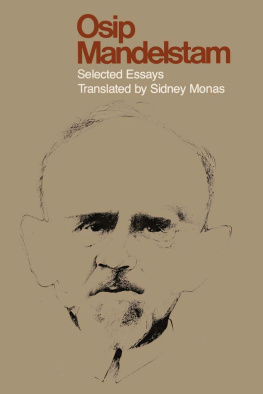MARINA TSVETAEVA
ART IN THE LIGHT OF CONSCIENCE
Marina Tsvetaeva (1892-1941) was one of the four great Russian poets of the 20th century, along with Akhmatova, Mandelstam and Pasternak. She also wrote outstanding prose. Endowed with phenomenally heightened linguistic sensitivity (Joseph Brodsky), Tsvetaeva was primarily concerned with the nature of poetic creation and what it means to be a poet. Among the most exciting of all explorations of this theme are the essays Art in the Light of Conscience, her spirited defence of poetry; The Poet on the Critic, which earned her the enmity of many; and The Poet and Time, the key to understanding her work.
Her richly diverse essays provide incomparable insights into poetry, the poetic process, and what it means to be a poet. This book includes, among many fascinating topics, a celebration of the poetry of Pasternak (Downpour of Light) and reflections on the lives and works of other Russian poets, such as Mandelstam and Mayakovsky, as well as a magnificent study of Zhukovskys translation of Goethes Erlking. Even during periods of extreme personal hardship, her work retained its sense of elated energy and humour, and Angela Livingstones translations bring the English-speaking reader as close as possible to Tsvetaevas inimitable voice. First published in English in 1992, ArtintheLightofConscience includes an introduction by the translator, textual notes and a glossary, as well as revised translations of 12 poems by Tsvetaeva on poets and poetry.
For me, there are no essays on poetry as unique, as profound, as passionate, as inspiring as these. Art, a series of answers to which there are no questions, Tsvetaeva brilliantly asserts, and then goes on to ask questions we didnt know existed until she offered them to us, and answers to some of poetrys most enduring mysteries
C.K. Williams.
COVER PAINTING
DeepThoughts (1900) by Mikhail Nesterov
OIL ON PANEL, THE RUSSIAN MUSEUM, ST PETERSBURG
To the memory of my dear friend Valya Coe
For the first edition of this book I was helped with innumerable questions of Russian language by Valentina Stefanovna Coe, whose undying delight in Russian poetry has inspired me for some forty years and to whom the book is again dedicated. Celia Hawkesworth and Dragan Milivojevic advised me on Serbian and Alexandra Smith commented usefully on the Introduction and on aspects of translation.
My thanks again to Donald Davie for having allowed me to reprint his translations of the quoted verse in Downpour of Light; my translation of that essay was first published in Pasternak:ModernJudgements, ed. Donald Davie and Angela Livingstone (Macmillan, 1969) and was considerably revised for this book. My translation of Art in the Light of Conscience, first published in RussianLiteratureTriquarterly,11 (Ardis, 1975), was also greatly revised. The translations of twelve poems have also been revised.
The original edition of this book was published by Bristol Classical Press in the UK in 1992 and by Harvard University Press in the US. Thanks are due to David Marshall of Duckworth Publishers for his kind assistance.
C ONTENTS
I have followed the usual British transliteration conventions, representing as y and or as i; e stands for both e and . Well-known names are given in their familiar form.
Except for those on pages , all footnotes are Tsvetaevas own.
A brief chronology, mentioning her main collections of verse and her other works referred to in this book. (The best biography is Simon Karlinskys MarinaTsvetaeva:TheWoman,HerWorldandHerPoetry, Cambridge, 1985.)
| 1892 | Born in Moscow. |
| 1894 | Birth of sister, Anastasia. |
| 1902 | Mother develops tuberculosis. |
| 1902-4 | Living in Italy, Switzerland and Germany. |
| 1906 | Death of mother. |
| 1908 | Published her first poems. |
| 1909 | Visited Paris. |
| 1910 | First volume of poems published, EveningAlbum. |
| 1912 | Married Sergei Efron. |
| Second volume of poems, TheMagicLantern. |
| Birth of daughter, Ariadna. |
| 1913 | Death of father. |
| 1915 | Met Osip Mandelstam. |
| 1917 | Revolution. Efron with the White Army. Tsvetaeva stranded in Moscow. |
| Birth of second daughter, Irina. |
| 1920 | Death of Irina. |
| Wrote SwansEncampment (poems) and Tsar-Maiden (long poem). |
| 1921 | Wrote the long poem OnaRedSteed. |
| Publication of volume of poems, Versts. |
| 1922 | Left Russia. Joined her husband in Berlin. |
| Wrote the essay Downpour of Light. |
| Publication of VerstsII. |
| Moved to Czechoslovakia (to a village near Prague). |
| 1923 | Publication of several collections of poems, including Psyche. |
| Wrote long poem TheSwain. |
| 1923-4 | Wrote first neo-classical play, Ariadne. |
| 1925 | Birth of son, Georgii (called Mur). |
| Wrote long poem TheRatcatcher. |
| Moved to Paris. |
| 1926 | Correspondence with Pasternak and Rilke. |
| Wrote the essay The Poet on the Critic. |
| 1927 | Wrote play Phaedra (this and Ariadne are verse-tragedies, referred to by Tsvetaeva as her Theseus). |
| Moved to Meudon. |
| 1928 | Publication of AfterRussia, last volume of verse in her lifetime. |
| Wrote long poem Perekop. |
| Met Mayakovsky in Paris. |
| 1930 | Wrote cycle of poems to Mayakovsky upon his suicide. |
| 1931 | Wrote the essay History of a Dedication. |
| 1932 | Wrote the essays The Poet and Time, Epic and Lyric of Contemporary Russia, and Art in the Light of Conscience. |
| 1933 | Wrote the essay Two Forest Kings. |
| 1934 | Published the essay Poets with History and Poets without History. |
| 1935 | Sergei Efron began working for Soviet secret service. |
| Met Pasternak in Paris. |
| 1938 | Returned with son to Moscow, where husband and daughter had already returned. (Anastasia was sent to prison camp the year before.) Ariadna and Sergei both arrested that summer. |
| 1941 | Soviet Union entered the war. Tsvetaeva evacuated from Moscow. Hanged herself in Elabuga. |
I
Good poetry is always better than prose, Tsvetaeva wrote. Prose as good as hers, however, is very rare. In the Soviet Union as in the West, Marina Tsvetaeva is now generally acclaimed as one of the four great Russian poets of this century. But she has yet to be acknowledged as the consummate writer of prose that she also was.
The three poets whose names are sometimes bracketed with hers Osip Mandelstam, Boris Pasternak and Anna Akhmatova also wrote excellent prose; the prose of Mandelstam and Pasternak, written mainly in the 1920s, ranks as high as their work in verse. The 1920s were in fact a remarkable decade in Russian literature. The renascence of poetry at the turn of the century was followed by an efflorescence of prose that had the concentration and power of poetry, whether its writers were actual poets (such as Belyi, Kuzmin, Mandelstam, Pasternak, Sologub) or solely prose writers (Babel, Olesha, Pilnyak, Platonov, Remizov, Zamyatin). Roman Jakobson called it the prose peculiar to an age of poetry.

